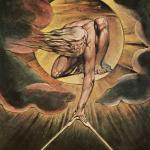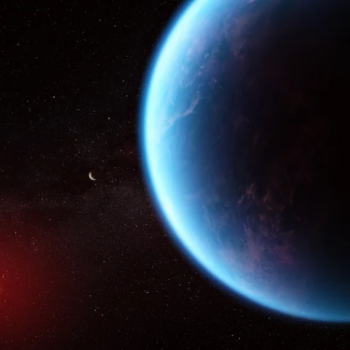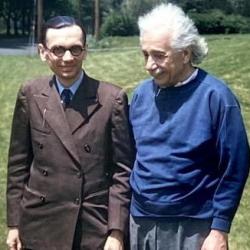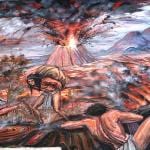Big History and Evangelical Theology: Roger Olson
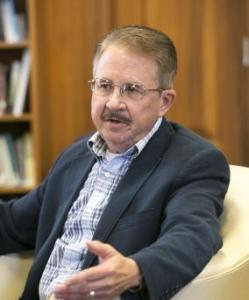
How do science and religion fit within Big History? This is the central question we are asking in this Patheos series. I’m asking scholars who stand with some critical distance to evaluate Big History. In this post, we ask veteran evangelical theologian Roger Olson to address Big History and Evangelical theology. We will see that Big History and Evangelical Theology mix like oil and water. That is, they don’t blend.
To repeat what I’ve said before, I find laudable the field-encompassing-field scope of Big History (BH). According to the International Big History Association…
“Big History seeks to understand the integrated history of the Cosmos, Earth, Life, and Humanity, using the best available empirical evidence and scholarly methods.”
If BH has no room for God, then its scope is too narrow. At least according to Professor Olson. The bigger problem, he says, is found in BH methodology, in BH presuppositions, in its materialist agenda. Might this bother an evangelical theologian? You betcha!
Meet Roger E. Olson
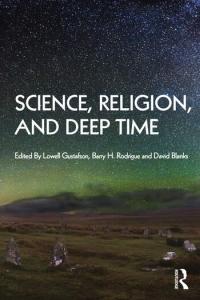
Roger E. Olson is Emeritus Professor of Christian Theology at Baylor University. He the author of over twenty books on Christian theology including Essentials of Christian Thought: Seeing Reality through the Biblical Story (Zondervan) that includes much material about science and religion.
Over the decades Roger has contributed erudite accounts of theology’s history with an aim to formulate biblically sound concepts, doctrines, and life guidance. Roger faces cultural crises with courage and integrity.
I especially like Roger’s fine essay of 2013, “Evangelical Theology,” in a The Routledge Companion to Modern Christian Thought (Olson 2013). He’s just the right scholar to ask about the relationship between Big History and Evangelical Theology.
Question 1: One of the pioneers in Big History is David G. Christian at Macquarie University in Australia. He rejects ancient creation myths as untrue and substitutes belief in the story of the Big Bang told by science. He states: the “modern origin story lacks a creator god…the modern story is about a universe that just is. Any sense of meaning comes not from the universe, but from us humans” (Christian 2018, 9). Would you affirm or critique this approach?
I critique this approach as lacking proof and any foundation for meaning or absolutists ethics. Philosopher Martin Heidegger said that the most fundamental question of philosophy is “Why is there something rather than nothing.” David Christian’s theory jumps from science to metaphysics inappropriately (under the guise of being scientific fact). If we humans are the only creators of meaning, then “meaning” loses meaning. Famous atheist philosopher Antony Flew came to believe in God on the basis of science near the end of his life and he was not senile (as some atheists suggested). That the universe “just is” does not address the fact that it just as well might not be (without a creator). I could go on, but I fear that David Christian and I live on different intellectual planets.
Question 2: Big historians frame the creation of earth and the appearance of life within the theory of evolution. This requires deep time, perhaps 13.8 billion years of cosmic history. Would you affirm or critique this approach?
I leave it entirely to science to determine the age of the earth and life on it.
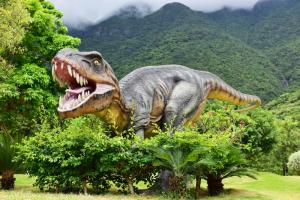
Question 3: In one of your Patheos posts, you say the following.
“Today the conversation, even debate, about modern science and religion within relatively conservative Protestant circles, tends to focus on the distinction between science, as a method, and naturalism as a philosophy.”
Now let’s look at what Arkansas Tech University historian David Blanks says about Big History methodology.
“My presupposition is that all religious, spiritual and occult beliefs and experiences are natural – not supernatural – and that this is the sense in which they should be investigated” (Gustafson, Lowell; Barry Rodrique, and David Blanks, eds 2023, 14).
Would you affirm or critique this Big History approach?
I critique it as mere assertion without evidence. It is, as Blanks admits, a mere presupposition. His presuppositions and mine are different. I believe mine. Some religious beliefs are rooted in faith and reason. As a theist, my presuppositions are more reasonable given the problem of meaning and the dignity of human life as worthy of special attention and protection.
Question 4: How would you recommend big historians incorporate both science and religion into telling the story of our universe?
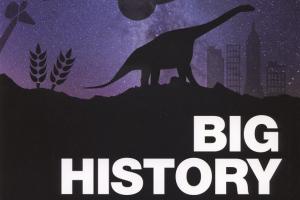
First I do not “hand over” to these historians-scientists the right to own the label “big.” I do not think their worldview is big at all. Much bigger is the theistic worldview. I do not think these historian-scientists and I have much in common except respect for science, when it sticks to its limitations. The “story of our universe” is still much in debate among scientists such as Roger Penrose who believes the Big Bang theory, by itself, lacks explanatory power. I think science and religion have much to teach each other so long as they do not encroach on each other’s territory.
Question 5: What else would you like to say about Big History and Evangelical Theology?
Religion must bow to science in matters of material fact (as has happened many times). Science must avoid reductionism and pretending that metaphysics is its territory.
Big History and Evangelical Theology Considered
“Are Evangelicals Anti-Science?” That what Sarah Kropp Brown asks. Her answer is frightening.
“Evangelicals are more than twice as likely as the general public (29 percent vs. 14 percent) to say that science and religion are in conflict and that they are on the side of religion. Distrust of scientists — their motives, expertise and influence — and the role of science in society underlie much of the tension.”
Now, I find this as sad as it is scary. Note Brown reports a vague trepidation. The anti-science attitude is not due to a finely honed theological argument. What we need from evangelical theology today is careful scholarship and leadership to aid us in sorting out the issues. Roger E. Olson provides that.
The favor Roger Olson as done for us is to smoke out the embers of naturalistic or materialistic presuppositions hiding under the logs of the BH campfire. An evangelical theologian will be reluctant to roast a marshmallow here.
For more on the BH debate, select some items from below to click.
Patheos SR 5051 BH 1 Science, Religion, and Deep Time
Patheos SR 5052 BH 2 Science and Religion in Big History
Patheos SR 5053 BH 3 Teilhard and Big History
Patheos SR 5054 BH 4 What is history in Big History?
Patheos SR 5055 BH 5 God in Cosmic History
Patheos SR 5056 BH 6 Big History and Evangelical Theology: Roger Olson
Patheos SR 5058 BH 8 Big History, Religious Naturalism, and Ursula Goodenough
Patheos SR 5059 BH 9 Big History and Progressive Christianity: Thomas Lindell
Patheos SR 5060 BH 10 Critique of Ted Peters by Mitchell Diamond
▓
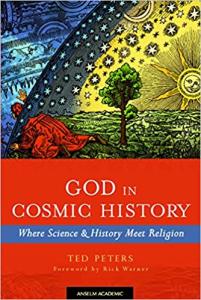
For Patheos, Ted Peters posts articles and notices in the field of Public Theology. He is a Lutheran pastor and emeritus professor at the Graduate Theological Union. He co-edits the journal, Theology and Science, with Robert John Russell on behalf of the Center for Theology and the Natural Sciences, in Berkeley, California, USA. His single volume systematic theology, God—The World’s Future, is now in the 3rd edition. He has also authored God as Trinity plus Sin: Radical Evil in Soul and Society as well as Sin Boldly: Justifying Faith for Fragile and Broken Souls. See his website: TedsTimelyTake.com.
Ted’s contribution to the Big History debate can be found in his book, God in Cosmic History.
His new 2023 book, The Voice of Public Theology, has just been published by ATF Press.
▓
References
Christian, David. 2018. Origin Story. London: Alan Land, Random House.
Gustafson, Lowell; Barry Rodrique, and David Blanks, eds. 2023. Science, Religion, and Deep Time. London: Routledge.
Murphy, Nancey, “Science and Theology: Mapping the Relationship.” Online.
Olson, Roger E. 2013. “Evangelical Theology.” In The Routledge Copmpanion to Modern Christian Thought, by editors Chad Meister and James Beilby, 549-559. London: Routledge.
Peters, Ted. 2017. God in Cosmic History: Where Science and Big History Meet Religion. Winona MN: Anselm Academic ISBN 978-1-59982-813-8.



